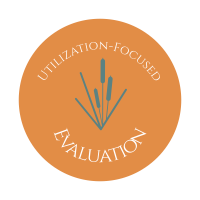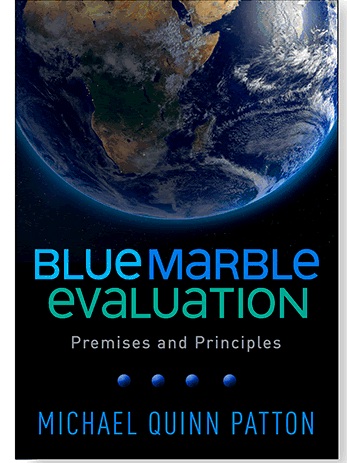Evaluation facilitation is a specialized niche within the larger world of facilitation. It applies and adapts general facilitation knowledge and techniques to the specialized challenges of working with stakeholder groups involved in program evaluation. The purpose of such facilitation is to enhance the relevance, credibility, meaningfulness, and utility of evaluations.
Evaluation facilitation falls within the Interpersonal Domain of the American Evaluation Association’s competencies. This domain focuses on the human relations and social interactions that ground evaluator’s effectiveness for professional practice. Interpersonal skills include cultural competence, communication, facilitation, and conflict resolution. This webinar will build skills in all of these interpersonal skills, with particular emphasis on facilitation as the bedrock of interpersonal evaluator competence. The interpersonally competent evaluation facilitator:
Fosters positive relationships for professional practice and evaluation use
Listens to understand and engage different perspectives
Facilitates shared decision making for evaluation
Builds trust throughout the evaluation
Attends to the ways power and privilege affect evaluation practice
Communicates in meaningful ways that enhance the effectiveness of the evaluation
Facilitates constructive and culturally responsive interaction throughout the evaluation
Manages conflicts constructively.
(Source: AEA Interpersonal Competencies)
This course is delivered in four virtual, instructor-led modules. Read about each of the modules below. Classes will take place online via Adobe Connect or Zoom. Certificates of completion will be provided at the end of the course to all participants who have successfully completed the modules.
Module 1: Evaluation Facilitation Overview: Dimensions, Skills, and Steps
June 15, 9 a.m.–12 p.m. EDT
This opening module will cover the five generic steps in group facilitation as applied to evaluation. Questions for establishing facilitation parameters will flow from framing and clarifying roles, responsibilities, and power dynamics. To enhance evaluation use, facilitation involves being active–reactive–interactive–adaptive; we will cover and illustrate what this means and how to do it. A facilitator self-assessment will build the scaffolding for facilitation capacity building. We will provide and discuss examples. Participants will share their own experiences and issues. We will also highlight classic evaluation facilitation failures as opportunities for learning.
Module 2: Five Operating Principles for Evaluation Facilitation
June 17, 9 a.m.–12 p.m. EDT
This module will introduce, explain, and illustrate with examples the five fundamental evaluation facilitation principles:
1. Be guided by the personal factor.
2. Engage through options.
3. Observe, interpret, and adapt
4. Embed evaluative thinking in all aspects of the facilitation.
5. Invigorate with leading-edge inputs.
Module 3: Facilitation Issues and Adaptation
June 22, 9 a.m.–12 p.m. EDT
In this module, we will identify common facilitation challenges. Usual issues to be discussed include: building evaluation capacity; why and how less can be more; going slowly to go fast; being mindful throughout; treating whatever happens as data; adapting facilitation to what emerges; and exercising your authority sparingly, but forcefully.
Module 4: Facilitation Cases and Opportunities for Practice
June 24, 9 a.m.–12 p.m. EDT
This final module will use cases to illuminate facilitation techniques, tools, and processes. Facilitation is a skill that requires practice and participants will have the opportunity to put all that they have learned into action. Afterwards, participants will discuss their experiences, and the group will generate lessons and effective practices.
Click here to learn more and register.







